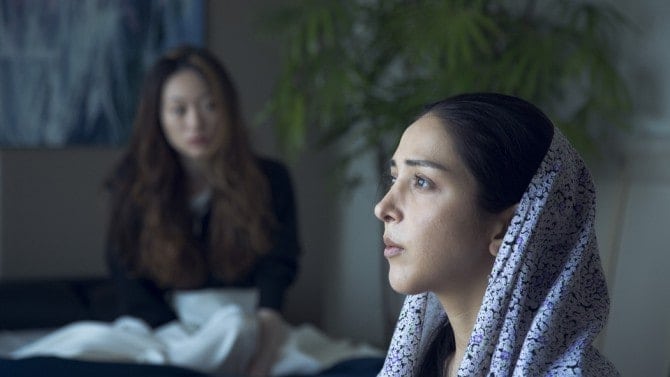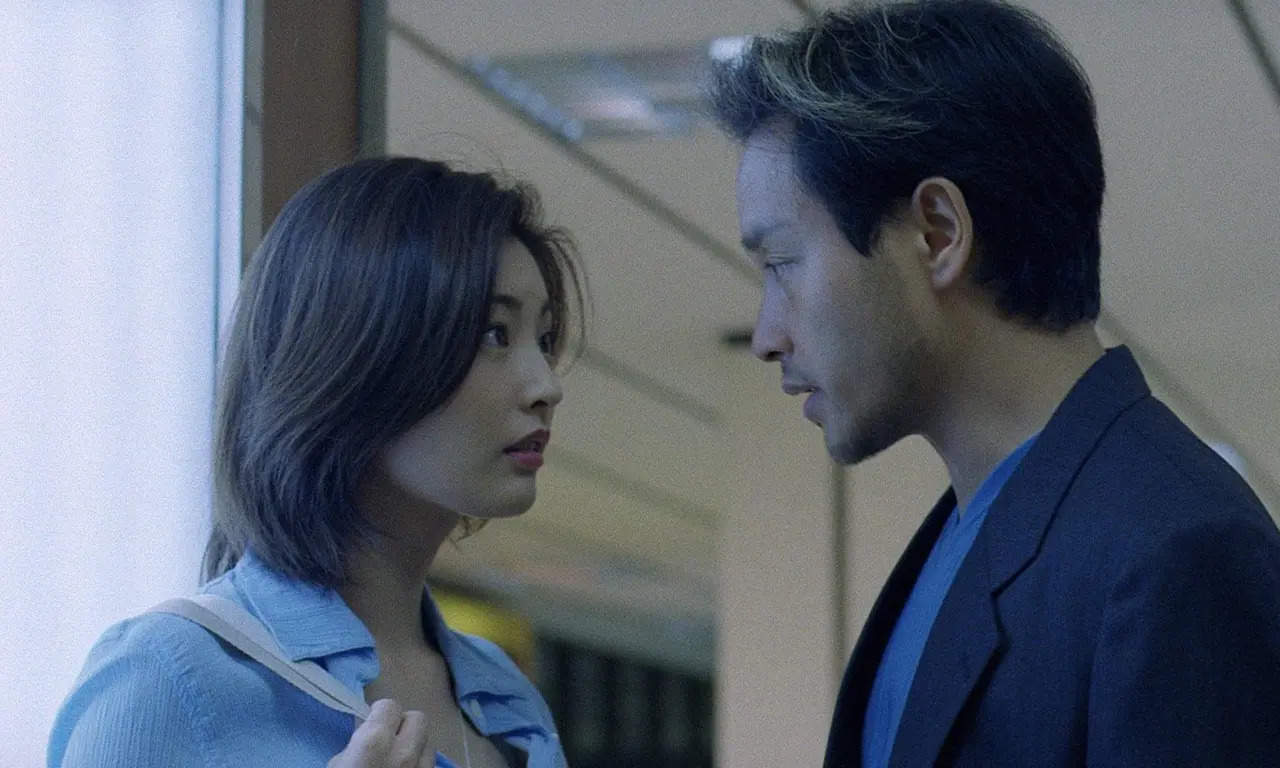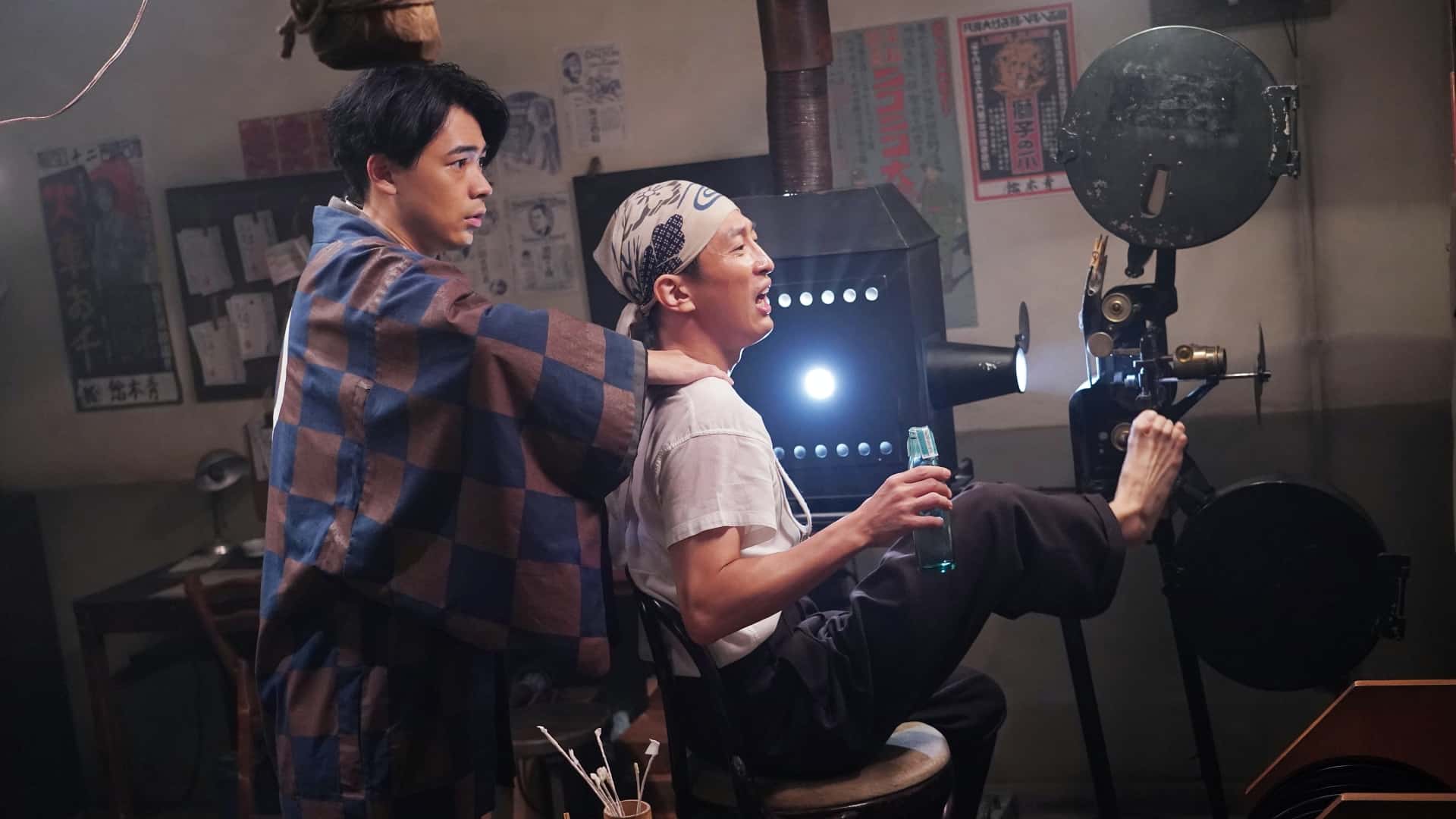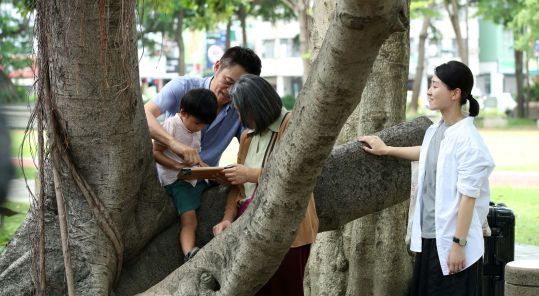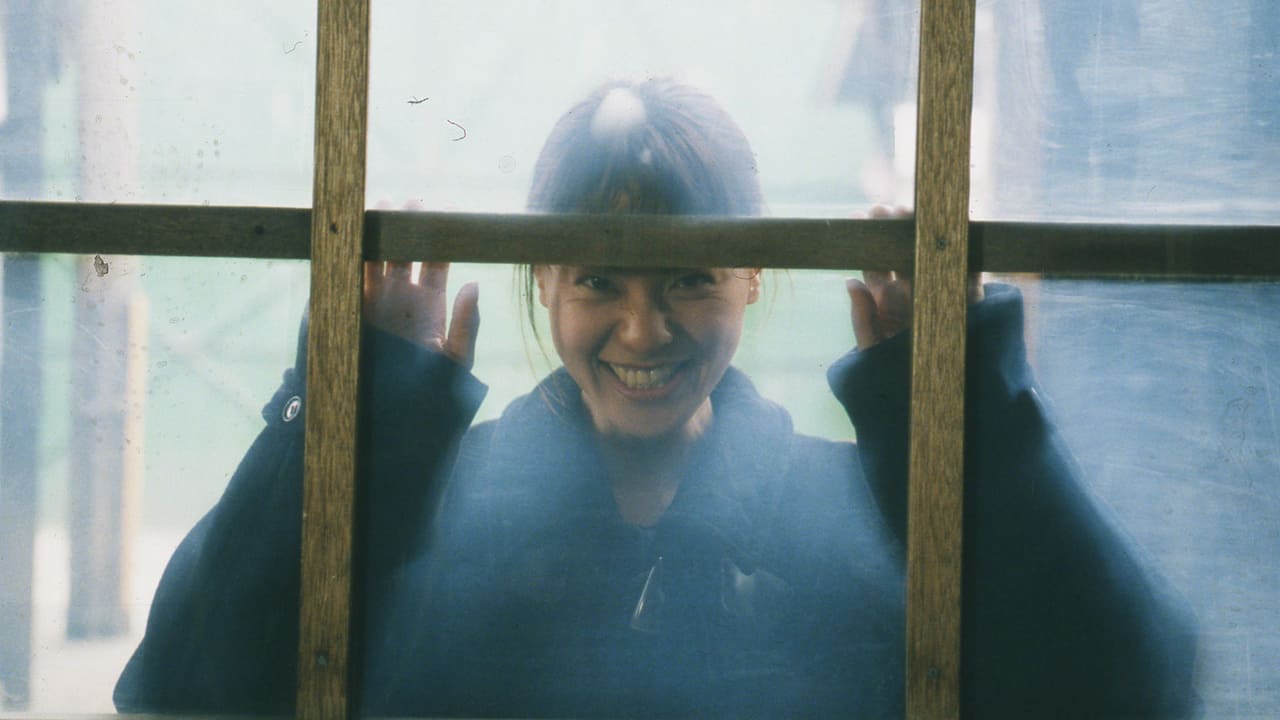Asian films about LGBT are on the rise the latest years, with films like “Our Love Story”, “Close-Knit”, “Die Beautiful” and “Fathers”. However, Takuro Nakamura takes the concept a bit further, as he combines it with the issue of cultural differences, while he also offers a rather artistic visage to the subject.
“West North West “screened at Japan Cuts
Naima is a rather shy, socially incompatible exchange student from Tehran living in Tokyo, where she studies art. Her life, though, seems to change when she attracts the interest of Kei, a radically different woman who works in a bar and has a relationship with a fashion model, Ai. Kei, however, has some troubles with her tumultuous relationship, and the somewhat morose and quiet nature of Naima draws her, with the girls quickly becoming friends. Kei seems to want more from Naima, who does not seem to share the same sentiments. Furthermore, Ai, who knows Kei quite well, starts becoming jealous of Naima, with her feelings leading her to confront the latter, and eventually her girlfriend too.
Takuro Nakamura directs a genuine art-house film, where the beauty of the image is as important and meaningful as the main theme. In that fashion, Yasutaka Sekine's cinematography is a thing of beauty, particularly in his use of ominous shadows, of the framing, which highlights the psychological status of the people in each scene, and of the color palette, where the blue and gray present a background that fits the general aesthetics of the film to perfection. Nakamura's own editing induces the film with a rather slow, but again fitting pace, although this focus on visual beauty could be a bit toned down, in order for the film to last a bit less than 126 minutes.
The presentation of the different cultures (Japan-Iran) is one of the highlights of the movie, as is presented in two axes. The first and the most amusing one concerns the culinary differences between the two nations, with yoghurt playing the central part in this concept. The second is sexuality, since Kei lives in a nation where she is able to pursue hers anyway she wants, while for Naima, it does not even occur to her that she could have such feelings. The scene where Kei explains her sexual preferences and Naima reacts by labeling her a lesbian is one of the strongest in the film.
Two more scenes are equally memorable, both including violence, although of different kind. The first is the confrontation of Ai and Naima, where the violence is verbal. The second one is the scene with the singing, which starts as somewhat funny but concludes in rather violent fashion, in a shocking sequence that stands apart from the rest of the movie.
The alienation of the megalopolis and the difficulties of an individual of a different culture to adapt is another point the script examines, as is the case with the pursue of love in the particular environment. The second aspect is the main source of drama in the film, although the chief representative of it is actually Ai, who feels that if she lets Kei move away from her even for a step, she will lose her, the only thing she seems to cherish in her life. Her feelings are eloquently presented again in the confrontation scene.
Hanae Kan, who plays Kei, seems to be on a rise of her career, with her roles in “Love and other Cults“, “Yamato (California)” and this particular one, where she exemplifies her ability to play social misfits and to emit an inherent melancholy. Rosa Sahel as Naima is great in presenting, laconically, her discomfort for the radically different environment she now lives in, and the impossible situation of her relationship with Kei. Yuka Yamauchi is impressive as Ai, managing to emit a sense of constant discomfort in the most elaborate way. The chemistry they share is another of the film's merits, while Nakamura definitely draws from the fact that all three of them are gorgeous in different styles, (Kei-punk, Ai-idol/lolita, Naima-foreign/”different” beauty).
On a last note, regarding the sex scenes, which recently have become the topic of much discussion after “Blue is the Warmest Color” and “The Handmaiden”, the film features a couple, but they follow the general artistic aesthetics of the film, without being graphic at all.
Takuro Nakamura shows great promise with “West North West”, as he presents an impressive combination of artistry and meaningfulness.


